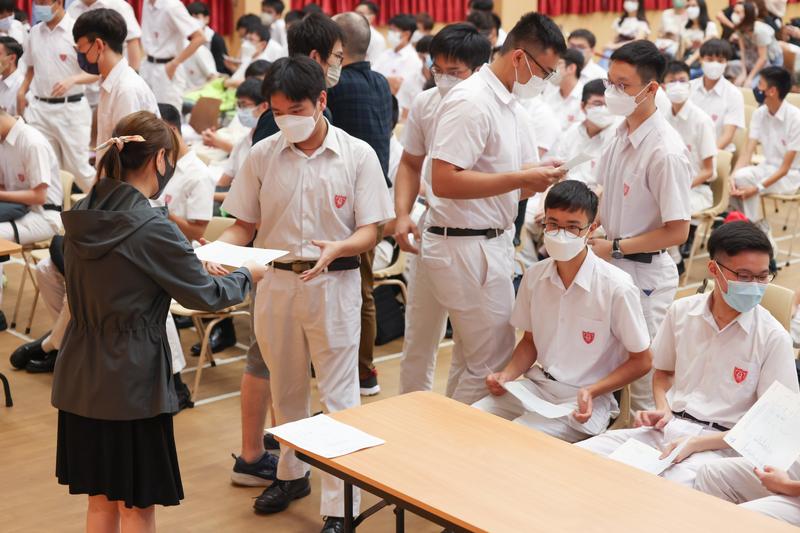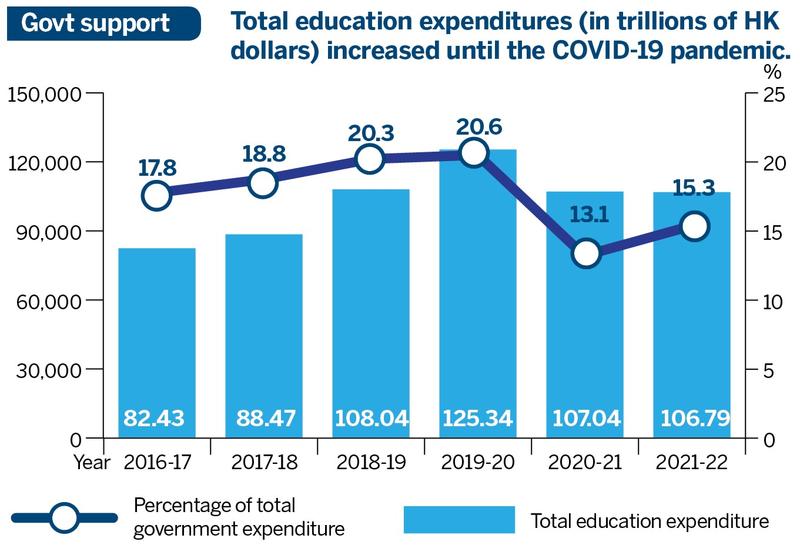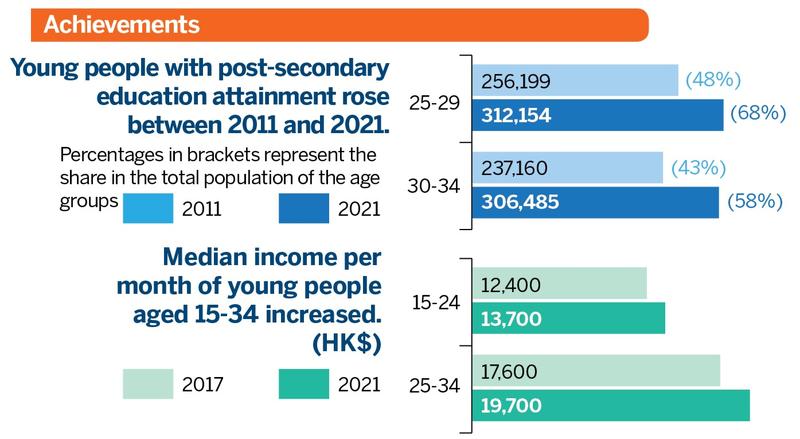 Students of Queen's College receive their Hong Kong Diploma of Secondary Education Examination results on July 20, 2022. (CALVIN NG / CHINA DAILY)
Students of Queen's College receive their Hong Kong Diploma of Secondary Education Examination results on July 20, 2022. (CALVIN NG / CHINA DAILY)
Hong Kong’s education sector and youth leaders hope that Chief Executive John Lee Ka-chiu’s first Policy Address will provide a concrete blueprint for youth development and create more opportunities for young people to move up the social ladder.
They’ve put forward a series of suggestions, including advancing vocational education, devoting more resources to help students, strengthening youths’ sense of national identity and offering them more support in purchasing homes.
Lawmaker Joephy Chan Wing-yan — the youngest member of the city’s seventh-term Legislative Council — hopes that the upward mobility of young people can be lifted by reducing their financial burdens and providing them with opportunities to explore their strengths and interests.
She urged the special administrative region government to use more resources for vocational education, such as introducing a dual-track vocational education system in junior and senior secondary schools.
Such a system would be helpful in increasing students’ career options and strengthening the combination of vocational training and career planning.

Chan notes that many young people in Hong Kong complete their education with student loans, and are worried that their debts could restrict their thinking and development.
The government should require students to pay only the interest on their loans on condition that they’ll make the annual loan repayments on time. This would allow them to think about their future without being burdened by financial problems.
Stressing the necessity to enhance young people’s sense of national identity, Chan suggests that the government should set up a special committee to formulate specific teaching guidelines on national education for local teachers and students. A director’s post should be created to oversee national education, including coordinating and implementing related student activities and courses, to reduce teachers’ workloads.
Emphasizing the importance of talents, lawmaker Tang Fei, who is also former principal of Hong Kong’s Heung To Secondary School (Tseung Kwan O), hopes the Policy Address would delve into cultivating young talents as this is key to strengthening Hong Kong’s competitiveness.
Besides, it’s important to attract more professionals from the Chinese mainland and overseas with not only tax and housing incentives, but also education benefits, says Tang. Education is also a vital factor for professionals, especially those with families, in deciding whether to reside in Hong Kong.

The introduction of nonlocal talents will also create healthy competition in the local market.
On the role of the newly created Home and Youth Affairs Bureau, Tang hopes it will launch initiatives to help Hong Kong youth, especially grassroots students, to open up their horizons and inspire their fighting spirit through various activities, such as exchange programs, with the mainland and the Belt and Road countries and regions.
Tang also believes it’s important for the government to further optimize education in primary and secondary schools, as well as kindergartens, to cultivate students’ creativity and build up their interest in technology and innovation.
Jack Cheung Ki-tang, chairman of the Hong Kong Youths Unified Association, hopes the chief executive will clarify the role of the Home and Youth Affairs Bureau and its blueprint for youth development.
He said the difficulties that young people face when purchasing a home are hindering their motivation to move up the social ladder. The government should offer them more support in this regard, such as giving priority to young families with children under the Home Ownership Scheme, and cooperating with private real estate developers to provide discounts for youngsters in buying homes.


